Available for over a year
Real Betis defender and former Arsenal player Hector Bellerin says with power comes responsibility after he was named Global Champion at the annual BBC Green Sport Awards. Now in their fourth year, the awards were…

Available for over a year
Real Betis defender and former Arsenal player Hector Bellerin says with power comes responsibility after he was named Global Champion at the annual BBC Green Sport Awards. Now in their fourth year, the awards were…
Assalam-o-Alaikum,
Welcome to the Ministry of Foreign Affairs.
At the invitation of the Prime Minister, Anwar Ibrahim, Prime Minister Muhammad Shehbaz Sharif, embarked on an official visit to Malaysia from 5-7 October…
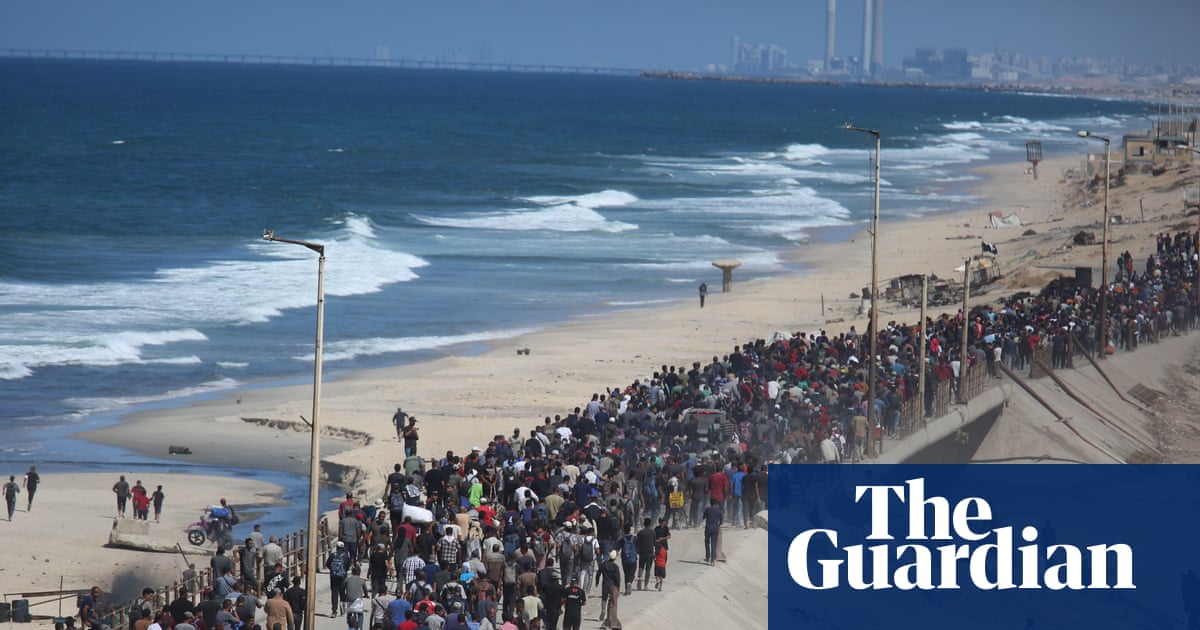
Thousands of displaced Palestinians have begun to return home from southern Gaza after a ceasefire came into effect and Israeli troops withdrew to an agreed-upon redeployment line – the first time that fighting has stopped in the devastated…
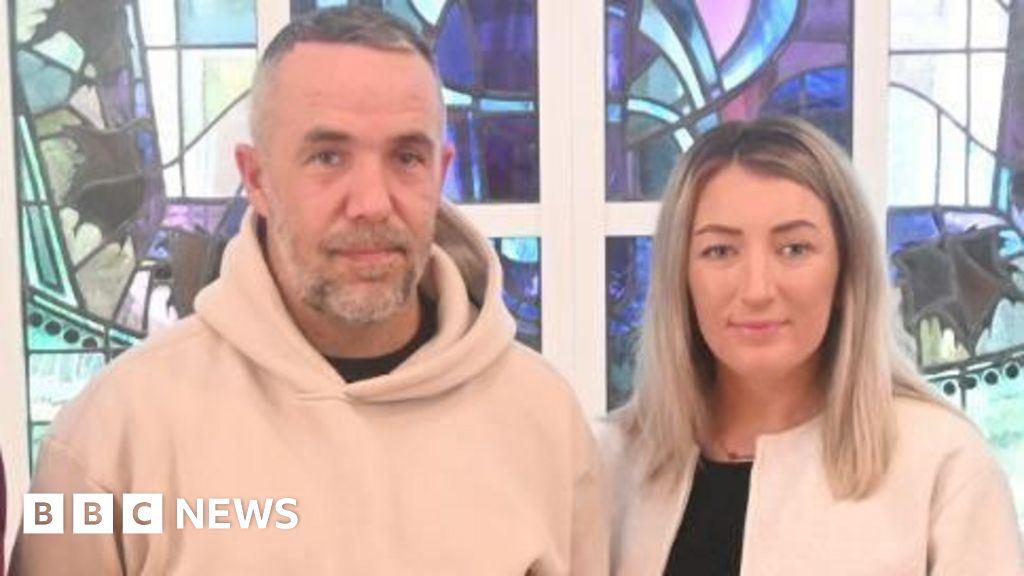
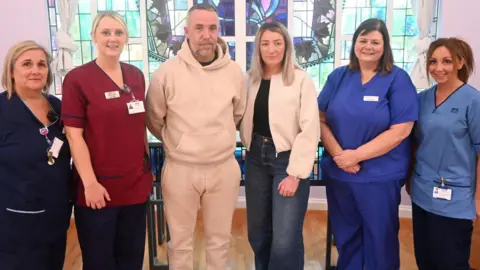 NHS Lanarkshire
NHS LanarkshireGreenock Morton manager Dougie Imrie…
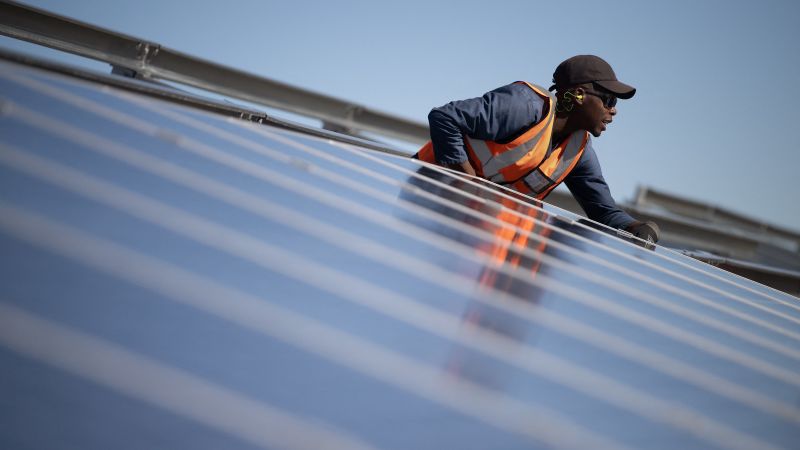
Globally, more than 660 million people still lack access to electricity — and 85% of them reside in sub-Saharan Africa.
Washikala Malango was one of these people.
Malango was born and raised in Baraka, a village on the shores of a vast lake in the Democratic Republic of Congo (DRC). His off-grid childhood was not particularly unusual: even today, around 78% of the population in the country has no access to electricity, according to the World Bank.
He recalls spending mornings at school and afternoons playing soccer in the streets, and at dusk, returning home to share the light of a kerosene lamp in the kitchen, where his mother prepared dinner.
There was no reading or studying in the evening: “We wouldn’t even buy enough kerosene to even make enough light (to last) until 9 or 10 p.m. Then you spend the rest of the night in the darkness,” he recalls. One evening, when a candle was left burning after hours, his cotton-filled mattress caught fire, and he awoke gasping through mouthfuls of smoke.
In the mid-1990s, during the Congolese civil war, Malango and his childhood friend Iongwa Mashangao fled Baraka. The teenagers ended up together in a refugee camp in Tanzania, which also lacked electricity.
“Relying on dirty and expensive sources of energy for lighting, for powering appliances, for learning, this had a very negative impact on our household’s income, on our health,” says Malango. These early experiences motivated Malango and Mashangao to launch Altech in 2013, a startup that provides easy-to-install home solar kits to bring reliable electricity to off-grid communities.
“We really wanted to contribute to the eradication of energy poverty in the DRC, given what we experienced growing up,” says Malango.
Made up of 54 countries, Africa gets more sunshine hours than any other continent. It has some of the highest levels of solar irradiance — the power of the sun per square meter — in the world, with “almost unlimited” potential for solar energy according to the African Development Bank.
Solar has been touted as the obvious solution to provide clean energy to the millions of people living without electricity.
Yet the continent had just 21.5 gigawatts of installed solar capacity in 2024, according to the International Energy Agency. By comparison, China, the global leader in solar power, added 198 GW between January and May this year alone.
What’s holding solar back in Africa?
“The problem that you have in many African countries is that you have scattered, low density population centers,” says Bruno Idini, an analyst at the International Energy Agency (IEA).
Issues vary from country to country, but national grids often struggle to expand beyond cities due to high infrastructure costs and bottlenecks, regulatory hurdles, unclear government policies, and sometimes, conflict and unrest.
When it comes to solar, these issues are compounded with the high upfront costs of large-scale farms.
Multinational projects aim to address these challenges, such as the “Mission 300” initiative, which has seen 29 nations pledge policy changes in a bid to improve energy access in the region and connected 30 million people so far.
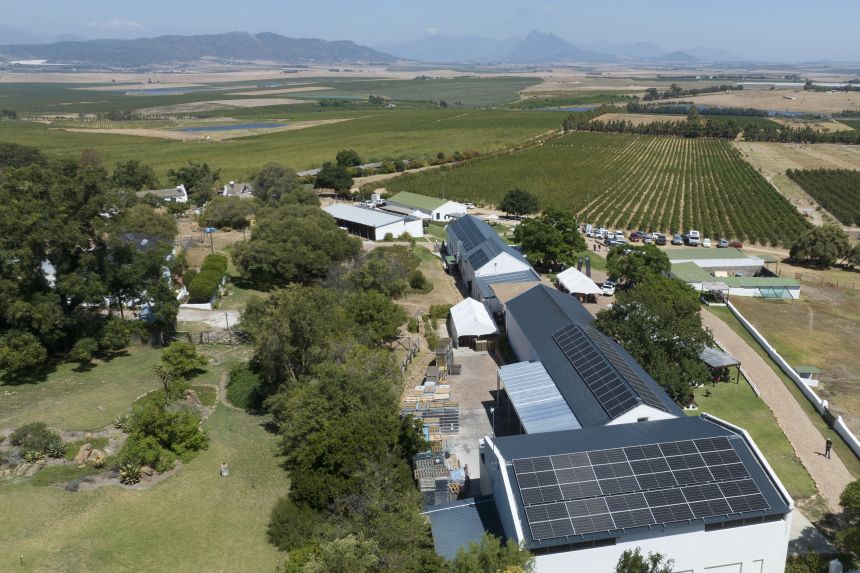
One of the most ambitious projects is the African Development Bank’s Desert-to-Power Initiative, launched in 2018. It aims to bring 10 gigawatts of solar power to 11 countries in the Sahel region — Burkina Faso, Chad, Djibouti, Eritrea, Ethiopia, Mali, Mauritania, Niger, Nigeria, Senegal, and Sudan — by 2030, potentially benefiting 250 million people.
However, more than halfway through the project’s timeline, only a fraction of its solar capacity has been financed. Its progress has been hindered by civil unrest, including five coups over three years, with six of the project’s 11 participating nations listed as conflict-affected by the World Bank in 2024.
In the past two decades, Africa has seen just 2% of global investment in renewables, despite its extensive untapped renewable resources.
The IEA estimates that it would cost $25 billion annually to bring universal electricity access to the continent by 2030 — and while investment in renewables in Africa is growing, particularly in the private sector, it still falls short of what’s needed to meet renewable targets.
While utility-scale solar still dominates the sector, distributed solar is expected to account for 42% of solar PV expansion in the next five years, according to the IEA.
These home solar systems and mini grids could “serve as a bridge while waiting for the grid,” says Heymi Bahar, senior renewable energy markets analyst at the IEA, and lead author of agency’s renewables report.
Falling costs make solar a “no-brainer” compared to fueling diesel generators for many families, says Bahar. However, he adds that the initial upfront capital required for solar PV remains a barrier — it’s estimated that only 22% of households without electricity can afford a “tier 1” solar kit, which equates to four hours of electricity daily — so government policies, venture capital, and seed funding environments play crucial roles in promoting solar adoption.
“If there is no help from the government in terms of either financing or micro financing systems, it’s quite difficult to pay for all this upfront for many people in Africa,” says Bahar.
The biggest barrier for investors in off-grid projects is “whether the grid will come or not, or when it will come — because you don’t want people to invest in a massive off-grid infrastructure, and then two years later, the grid comes,” says Bahar. Clear policies and transparent planning can “de-risk” these projects to attract external financing, he adds.
In the meantime, startups like Altech are making a dent. Their business model allows customers to pay for the solar kit over several months, rather than upfront. According to the UN, the average daily income in the DRC is $3.92, which made even a seemingly small upfront payment of $13 for a solar lamp out of reach, says Malango.
Altech introduced mobile payments in 2022, to facilitate its pay-as-you-go solar kits, ranging from entry-level lighting systems to more comprehensive packages that include products like a television or an induction cooking stove.
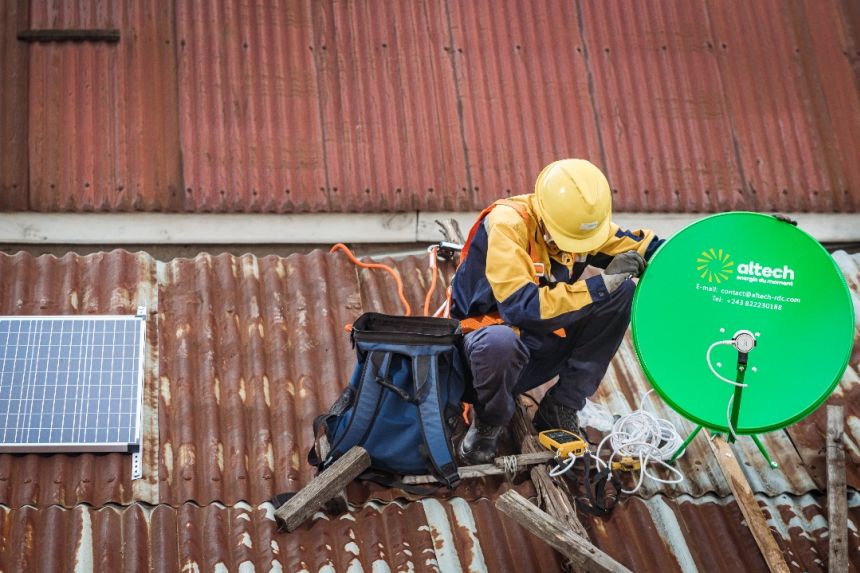
Without the solar systems, households would spend hundreds of dollars annually to get kerosene canisters that would support basic lighting and cooking needs.
Malango says that the most popular solar home system includes two 50-watt solar panels, designed to support a television, radio, soundbar, fan, phone charger, and two bulbs. On the larger systems, customers pay a small down payment and the rest over 2 to 5 years.
Beyond economic savings, these off-grid solar systems improve quality of life: reliable lighting allows children to study at night and improve their educational performance, and households can reduce their exposure to harmful pollutants from kerosene, and the negative health impacts from accidental fires and smoke inhalation.
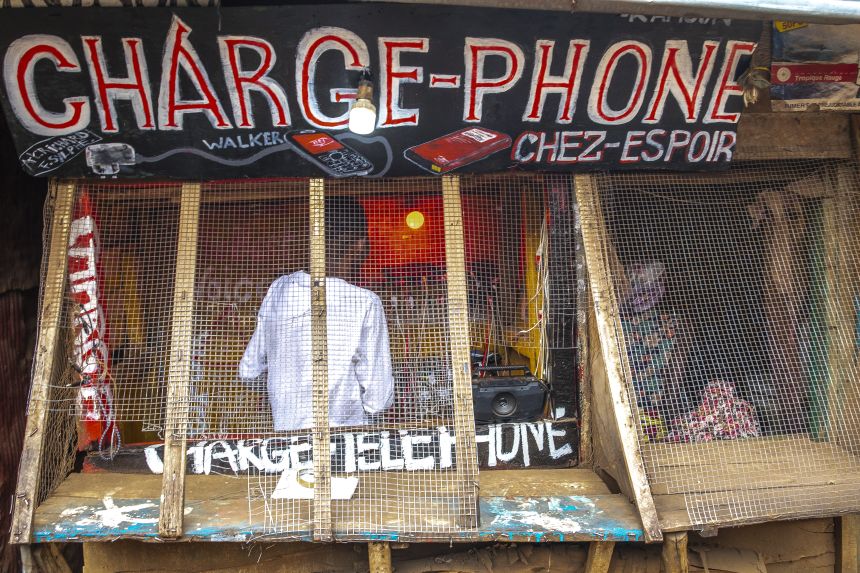
Even small things, like charging a mobile phone, become infinitely easier and cheaper, says Malango: people would typically go to diesel generator-powered charging shops, spending between $1-$3 to charge their phone, which could also be lost or stolen during charging.
“Now they can charge at their own place, anytime, so it has also helped a lot,” adds Malango. To date, the company has reached over 2.5 million people in the DRC.
Decentralized energy solutions like Altech are becoming increasingly important in the quest for energy equity.
According to the IEA, around a quarter of electricity connections in sub-Saharan Africa between 2020 and 2022 were provided by off-grid solar systems.
Other enterprises across the continent are also filling the gaps in the main grid: Kenyan startup M-Kopa was one of the first in the pay-as-you-go solar sector in 2011, and has since successfully pivoted its business expanding into digital finance, smartphones and e-mobility.
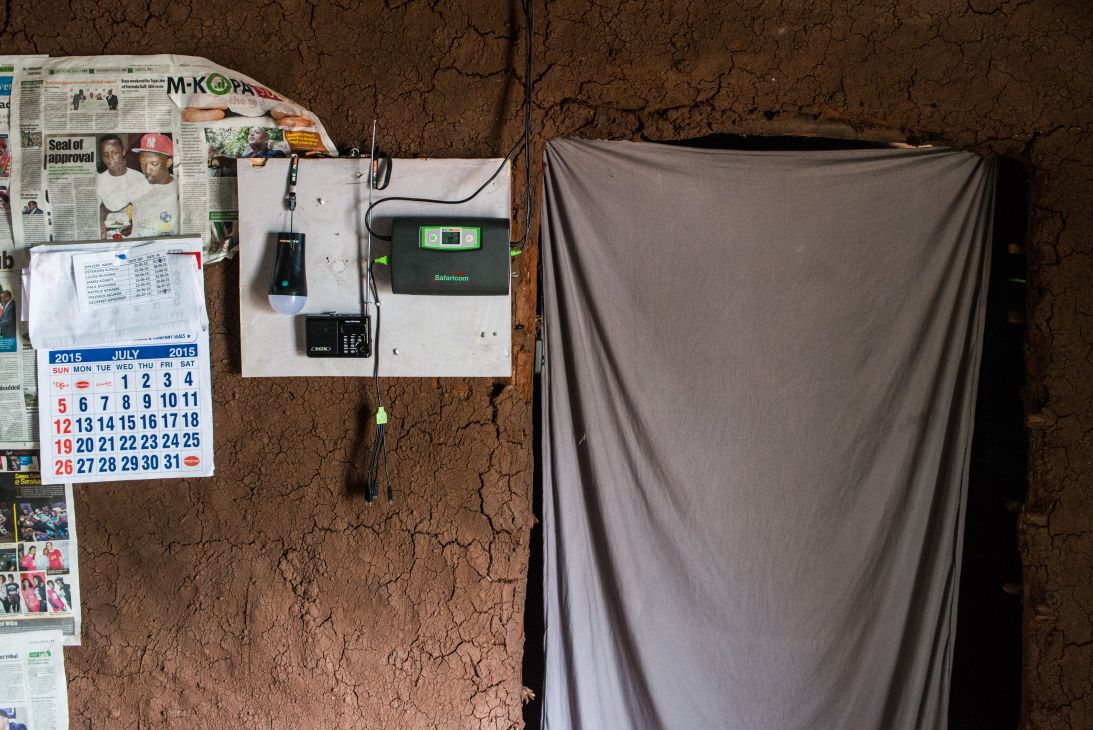
Izili, formerly Baobab+, raised over $21 million for its operations in Nigeria, Senegal, Madagascar, and Ivory Coast, where it’s brought solar kits and off-grid cooking stoves to 2 million people and counting. In South Africa, LightBox Africa provides micro-financed solar kits repaid over three years.
And Congolese startup Nuru, which means “light” in Swahili, focuses on solar mini grids for remote communities. In 2023, it secured $40 million to build the largest mini grid in sub-Saharan Africa.
These off-grid energy solutions are often providing “first time access to African households,” which given the continent’s large youth demographic – 70% of sub-Saharan Africa is under 30 — can help provide opportunities for the next generation, says IEA analyst Idini.
“It’s sort of a vicious cycle — you don’t have power because you cannot pay for it, but you cannot pay for it because you don’t have power,” says Idini. “That’s where solar home systems and mini grids can play a very big role.”

When Jack Kerouac published On the Road in 1957, he presented the novel as the product of a single marathon writing binge. It was a method he had been working on since the late 1940s that his friend Allen Ginsberg dubbed “spontaneous bop…

As the autumn’s cool weather settles in, so does flu season – bringing with it the familiar experiences of sniffles, fever and cough.
Every year, influenza – the flu – affects millions of people. Most will experience the infection…